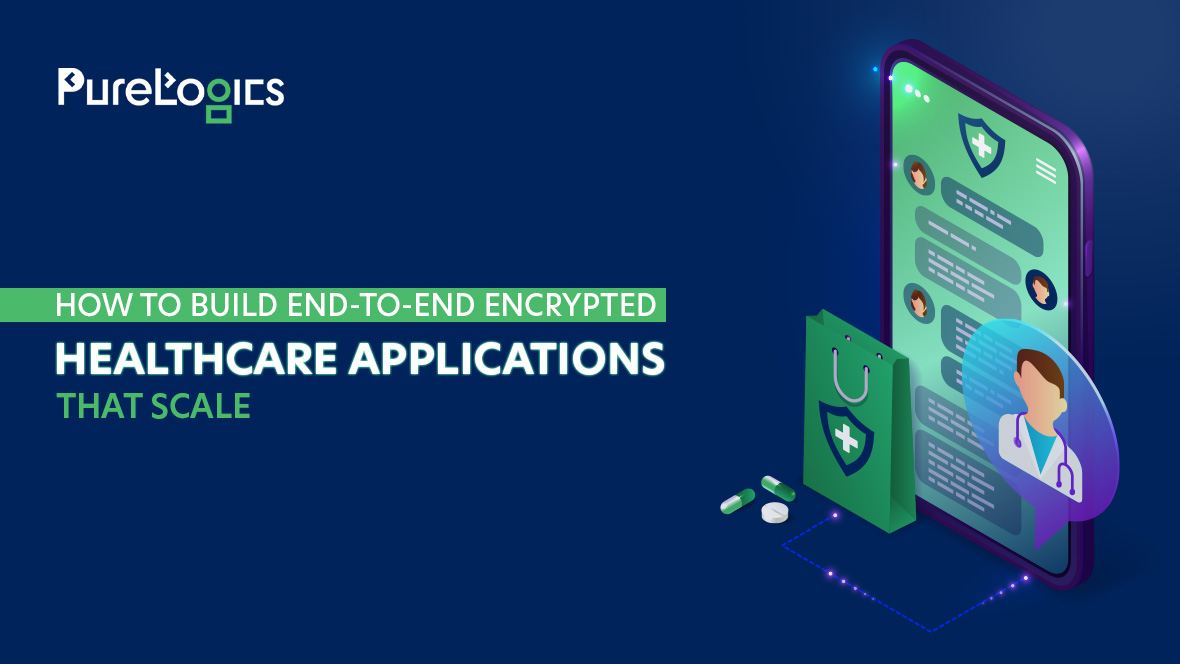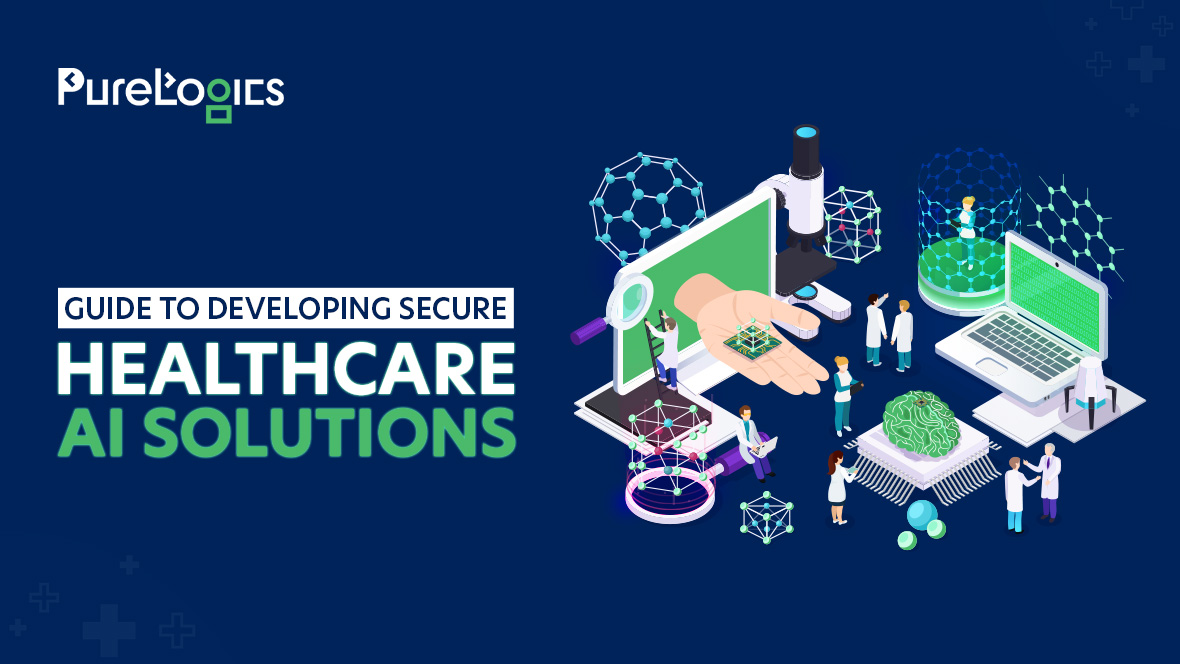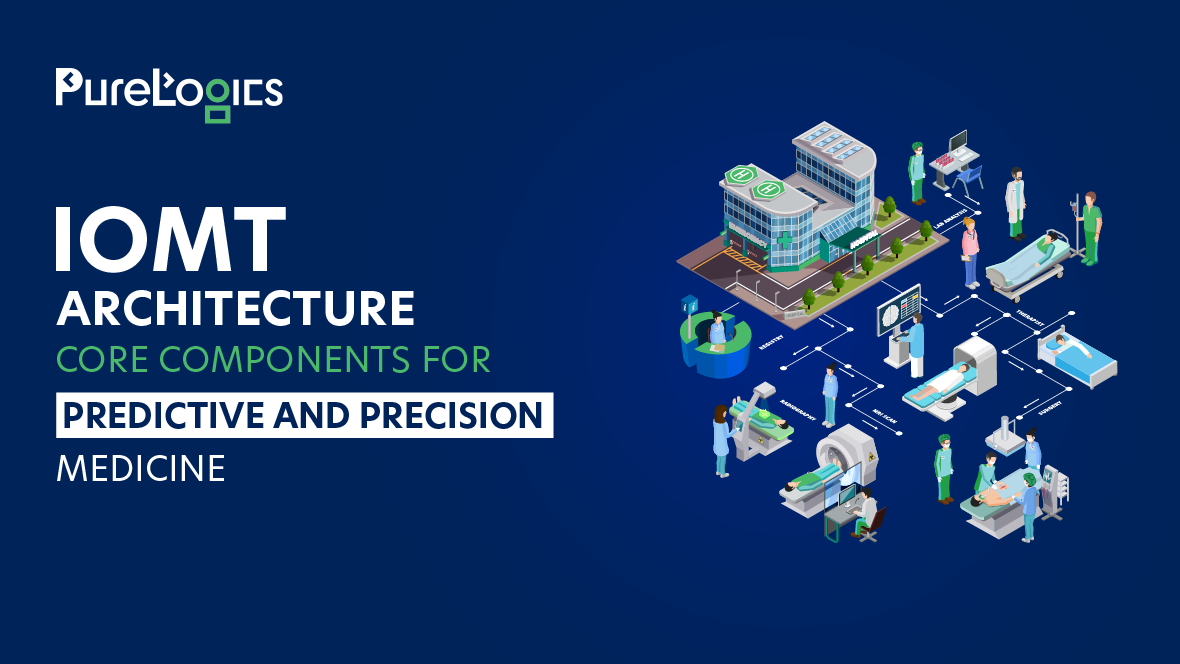Picture this: There is a hospital struggling to keep track of patient records, staff schedules, and billing operations, all while trying to deliver timely care. As a result, patients start missing appointments due to system failure. Meanwhile, scheduling conflicts among doctors lead to burnout and inefficiencies. This is where healthcare software comes into play, offering tailored features fitting every hospital’s needs.
Of course, you might have come across many software programs guaranteeing efficiency using fancy words like automation or AI-driven. But you need software that works for you, fulfilling all your needs. And in this blog, we are going to help you find the best software suitable for your needs.
Beginning this blog with the benefits of healthcare solutions, types, uses, cost of development, and use cases.
Starting with benefits…
Benefits of Healthcare Software
The healthcare solution is crucial in improving patient care and workflow by streamlining day-to-day operations and improving patient outcomes. The following are the benefits of the software:

Every healthcare institution or hospital functions differently and has its own set of needs. Because of this, a one-size-fits-all software solution is not a good option.
Instead, the custom healthcare software is designed and developed to address specific workflows, goals, and challenges. Keeping this in view, let’s discuss different types of software.
Types of Healthcare Software
Below are the different types of healthcare solutions:
Electronic Health Record (EHR) Software
It is a digital version of a patient’s health records that stores patient medical histories, diagnoses, etc. It offers easy access to data to help healthcare professionals make informed decisions. There are two types of EHR software.
- Electronic Patient Record Software (EPR): It can be used internally to store and process patient information.
- Electronic Medical Record Software (EMR): It stores information like medication types, dosage, and patient recovery procedures.
What are the benefits of EHR Software?
Some of the top advantages of EHR software include:
- Quick access and updating of patient records.
- Reducing paperwork saves time.
- Share real-time data with other healthcare providers.
- Prevention of errors with efficient access to patient history (allergies, etc).
EHR can include a financial module for payments, invoicing, and portals for patients. To help them access their consultation history, medical records, and prescriptions.
Healthcare CRM Software
CRM systems support healthcare organizations in building strong patient relationships by effectively maintaining contact information. This helps improve care quality by offering performance analytics and insights. There are three types of healthcare CRM software.
- Analytical: This type of CRM contains powerful analytics tools that help healthcare institutions analyze patient data, patterns, and trends.
- Collaborative: They facilitate quick information sharing, allowing collaboration across various hospital departments.
- Operational: It helps in task coordination among healthcare professionals.
What are the benefits of Healthcare CRM software?
Some of the top advantages are given below:
- Enhance the account management processes and operational planning.
- Provides secure access to updated information.
- Generates valuable predictions (related to patient stay and retention rates, etc.)
- Offers insights for targeted marketing and outreach.
Hospital Management Software (HMS)
This software automates and streamlines administrative and clinical tasks and allows effective management of patient records, appointments, billing, inventory, etc.
What are the benefits of Hospital Management Software?
It is quite beneficial for hospitals in the following aspects:
- Gives insights into hospital operations.
- Centralizes administrative operations for effective coordination.
- Helps in exchanging information about patient vitals.
- Facilitates in correct allocation of resources.
The following are the different types of HMS.
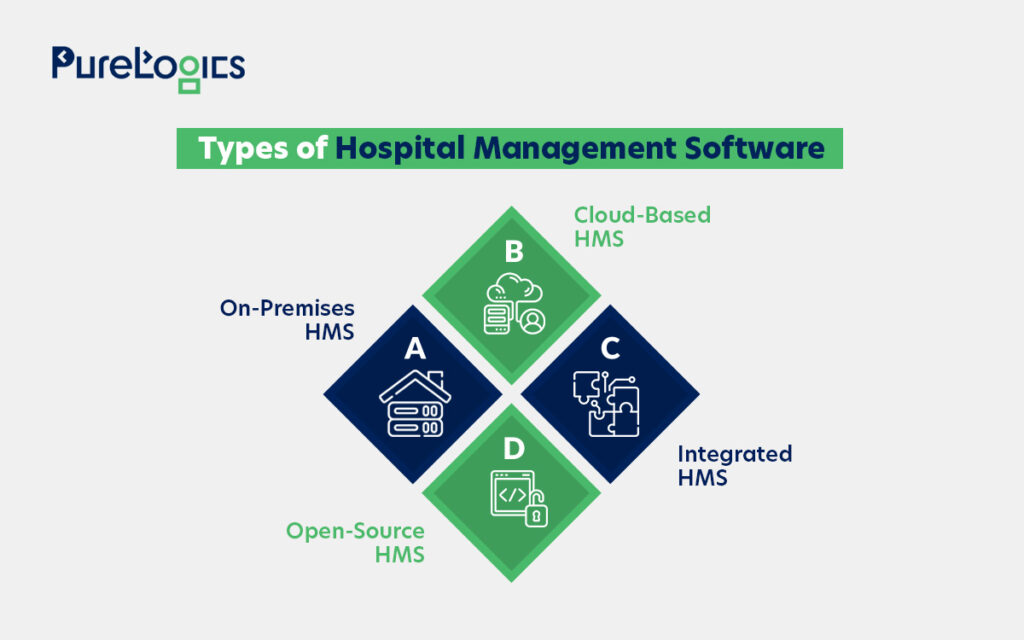
Medical Diagnosis Software
It helps healthcare professionals identify diseases and medical conditions based on patient data (symptoms, test results, medical history, etc). They can be fueled with AI to analyze all available patient data to generate probable diagnoses.
What are the benefits of Medical Diagnosis Software?
The main advantages of Medical Diagnosis Software are as under:
- Allows early detection and intervention.
- Offers accuracy and precision in analyzing medical data.
- Enables remote monitoring of patients.
- Presents a visual representation of medical data.
Medical Imaging Software
These are designed to process, analyze, and visualize medical images (X-rays, MRI scans, ultrasounds, and scans). Enabling healthcare professionals to interpret images and make accurate diagnoses.
What are the benefits of Medical Imaging Software?
Healthcare professionals can use this software to:
- Identify areas of treatment without any errors.
- Validate diagnosis
- Track the progress of the disease by comparing various images.
- Offers detailed visuals that help in planning surgeries.
This software will become even more lucrative in identifying subtle abnormalities with the advancement of AI.
Telemedicine Software
It allows healthcare providers to deliver medical services remotely by utilizing video calls, online tools, and messaging. The software supports virtual consultations, patient data exchange, and remote monitoring.
In a nutshell, they are highly effective in teleconsultations, telemonitoring, telecare, teletherapy, and other similar applications.
What are the benefits of Telemedicine software?
The benefits that make it one of the most popular software programs are given below:
- Offers easy access to specialists.
- Lower consultation cost.
- Access to medical facilities for people without health insurance.
- Improved healthcare access for individuals in remote areas.
Due to the ability to improve access to more clients, the telemedicine software has witnessed exponential growth.
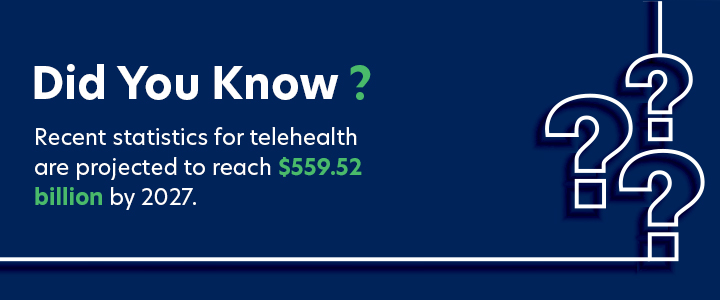
Medical Billing Software
It is for hospitals’ accounting departments to monitor patient invoices, payments, and any other financial operations. It is mostly integrated with bigger systems like EHR or hospital management software. There are two types of Medical Billing Software:
- Cloud-Based Billing Software: It helps hospitals to manage billing and payments online with real-time access from any location.
- Stand-Alone Billing Software: A single-use application or on-premise software used only for billing tasks, often without integration with other hospital systems.
What are the benefits of Medical Billing Software?
The advantages of this software are given below:
- Provides billing transparency and clarity.
- Decreases costs and processes payments faster.
- Minimizes postage and stationery costs.
- Gives patients flexible payment options.
- Offers real-time data analysis.
- Boost security with secure encryption methods and access control.
Roaster Management Software
Designed to help hospitals manage and schedule staff shifts, making sure that healthcare professionals are available at the right time. They are vital in reducing scheduling conflicts, improving overall efficiency by optimizing workforce allocation.
What are the benefits of Roaster Management Software?
This healthcare software presents the following advantages to its users.
- Develop, maintain, and communicate schedules without effort.
- Build roasters for review, check for conflicts, and publish them with one click.
- Efficient management of clinical allocations across large and small health facilities.
- Allows fast communication via SMS and email (track message receipts).
- Track meetings, events, and attendance.
Medical Equipment Management Software
It helps in the effective management of medical equipment and devices (from purchase to disposal). It relieves the hospitals from manual monitoring of stocks.
What are the benefits of Medical Equipment Management?
Some of the top advantages are given below:
- Streamlines asset management.
- Ensures regulatory compliance.
- Enables optimal use of devices.
- Ensures regular maintenance and tracking.
- Helps in effective management of inventory (track usage and overstocking).
- Maintains records of inspection and maintenance to meet healthcare standards.
Patient Management Systems (PMS)
It helps keep track of patient information (diagnoses and drug plans), manages patient registration, appointments, and communication.
Patient Management Systems (PMS) vs EHR vs Billing Systems
You can get confused between PMS, EHR, and billing systems, and here’s the difference between these three systems. PMS handles the overall patient flow and administrative tasks, EHR stores and manages clinical data, whereas billing systems focus on processing payments, claims, and financial records.
What are the benefits of Medical Equipment Management?
Below are the top advantages:
- Automates booking, reminders, and cancellations.
- Centralizes patient data for easy access.
- Higher patient satisfaction due to fast communication.
- Ensures secure data storage as per compliance standards.
Laboratory Information Management Systems (LIMS)
This software is used to manage the various aspects of laboratory operations. Such as keeping track of the lifecycle of samples, automating laboratory operations, and workflows.
What are the benefits of Laboratory Information Management Systems (LIMS)?
The advantages of LIMS are given below:
- Manages sample lifecycles (from collection, storage, and disposal).
- Minimizes manual entry errors and streamlines lab processes.
- Speeds up data processing and analysis.
- Helps meet regulatory standards (HIPAA, etc) via audit trails and documentation.
- Reduces turnaround time with efficient tracking of patient samples.
- Stores and manages a large volume of laboratory data.
By integrating LIMS, healthcare professionals can increase laboratory efficiency, enhance data accuracy, and uphold high standards of patient care.
Healthcare Tracking Apps
These are mobile or web-based apps that help patients track various aspects of their health. Such as efficient monitoring and tracking of their fitness, diet, stress, and medication.
What are the advantages of Healthcare Tracking Apps?
The top advantages of healthcare tracking apps are given below:
- Allows users to track vital signs, symptoms, and habits.
- Helps detect abnormal trends or warning signs.
- Assists patients in managing conditions like asthma, hypertension, etc.
- Provides patients with regular updates and reminders on their health condition.
- Enables users to share health data with doctors and caregivers.
- Tracks exercise, diet, and sleep patterns to encourage healthy lifestyle changes.
It can become difficult to decide which healthcare software is appropriate for your needs. So, below we are explaining the utility of each software depending on the condition.
| Healthcare Software | Condition/Need in Hospital |
| Electronic Healthcare Software (EHS) | When you need to store, access, and manage patient medical records digitally. |
| Healthcare CRM software | Appropriate when a hospital needs to strengthen patient communication and engagement. |
| Hospital Management Software | Best for managing all clinical, financial, and administrative operations. |
| Medical Diagnosis Software | Required when supporting doctors with data-driven, accurate diagnoses. |
| Medical Imaging Software | For efficient analysis of X-rays, MRIs, and other medical images. |
| Telemedicine Software | Required when you are looking to offer remote consultations and virtual healthcare access. |
| Medical Billing Software | When you are looking to manage patient billing, insurance claims, and financial records |
| Roster Management Software | Useful when you want to efficiently manage healthcare staff shifts to minimize conflicts. |
| Medical Equipment Management Software | Best when you need to monitor, maintain, and optimize medical equipment. |
| Patient Management System (PMS) | When you are looking to organize patient appointments, communication, and records. |
| Laboratory Information Management Systems (LIMS) | Required when you are looking to decrease the turnaround time and want efficient tracking of lab samples, test results, and workflow automation. |
| Healthcare Tracking Apps | Best when patients are self-monitoring and sharing health data with providers. |
Cost of Healthcare Software Development
The basic solutions with less number of features may range from $10,000 to $50,000. However, the advanced systems (telemedicine platforms or AI-driven platforms) can range from $100,000 to $4500,000 or more. Usually, the factors that influence the cost are:
- Integration with existing systems.
- Data security and regulatory compliance.
- Custom UI/UX and development duration.
| Type | Estimated Cost (USD) |
| Electronic Record and EMR App | $45,000-$150,000 |
| Healthcare CRM Software | $40,000-$250,000 |
| Medical Diagnosis Software | $20000 -$150,000 |
| Telemedicine App | $145,000-$450,000 |
| Medical Billing Software | $70,000-$180,000 |
| Appointment Scheduling App | $45,000-$75,000 |
| Fitness and Wellness App | $50,000-$120,000 |
These are rough estimates, so to get an accurate price, tell our experts your project requirements and get a free quote.
The digital healthcare sector is a booming industry, and the latest technologies are transforming it at a rapid pace. So, below are a few trends you should know to stay ahead.
Healthcare Software Trends For 2025
The trends that are going to shape the future of healthcare are given below:
Virtual Healthcare Assistants and Chatbots
AI-based chatbots and virtual assistants allow patient engagement by giving instant personalized healthcare support. They can facilitate scheduling appointments and handle medical documentation. Enhancing the overall patient engagement and care coordination.
Wearable Health Devices Integration
Healthcare software is increasingly being integrated with wearables. For example, the healthcare mobile apps can synchronize with wearables (fitness trackers, pulsometers, etc.) and use the collected data to analyze health conditions of patients (via sensors placed on their bodies).
Medical 3D Printing
These are interactive 3D models vital for clinical research, planning, and practicing surgeries.
Use Cases
Medical software has truly transformed how healthcare institutions operate, and with time, these solutions will become more advanced. Therefore, increasing their utility, causing their widespread adoption across the globe.
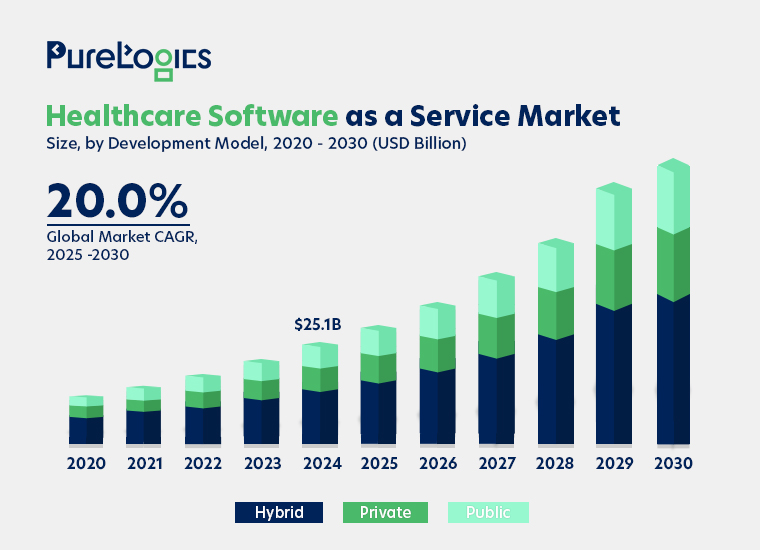
Source: Grandview Research
Indeed, healthcare solutions have become a necessity for healthcare institutions due to their scalability and transformative impact. While many off-the-shelf solutions exist but they lack scalability and pose security risks, and become expensive as new features are added. In comparison, the custom healthcare solutions offer tailored functionality, compliance, robust data protection, and cost-effectiveness. Making them more reliable and useful for hospitals aiming to scale effectively.
Let us give you examples of healthcare projects developed by us for our clients, keeping in mind their requirements. We took care of everything from ideation, development, to deployment.
CaringOnDemand: On-Demand Healthcare App Development
PureLogics developed a HIPAA-compliant caregiver app for iOS, empowering certified care providers to connect with nearby care recipients and earn income via the platform. Our team also developed a web-based app that allowed patients to schedule and request care services for a particular date and time.
Medical Media Network: Digital Signage Software Development
Our team developed this online media platform that offers a range of medical sectors with a digital signage system that is customizable and easy to set up.
In a Nutshell
It can be safe to say that the healthcare solution market is in full bloom due to the many benefits it brings. Such as improved efficiency, better control over patient data, cost reduction, efficient diagnostics, and fast billing, etc. All in all, the future of healthcare is also being shaped by advancements in AI, chatbots, and telemedicine, which are further improving efficiency.
So, healthcare organizations to meet new challenges require innovative software solutions, and for that, they need to work with experienced developers who are adept at building futuristic solutions.
PureLogics has top-tier expertise in designing and developing custom software solutions with around two decades of experience. We have helped our clients meet diverse industry needs with 50+ healthcare projects completed under our belt. Connect with our experts to explore the latest healthcare software development technologies and see how we can build software that can guarantee your success.

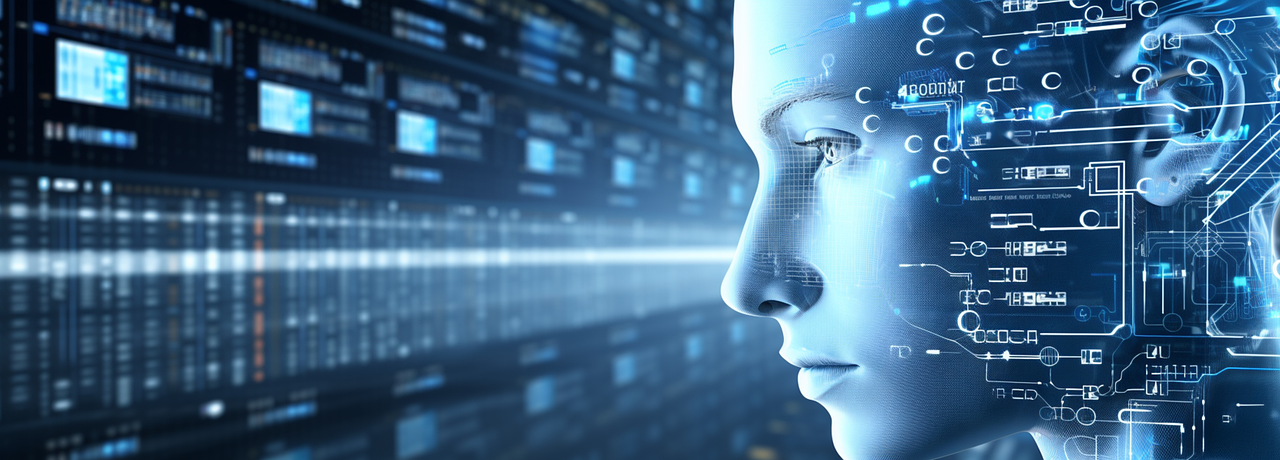
 [tta_listen_btn]
[tta_listen_btn]
 April 28 2025
April 28 2025


